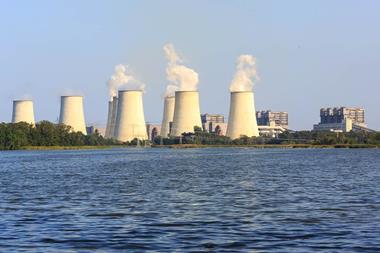The Institute & Faculty of Actuaries (IFoA) has urged investors and supervisors to rethink their approach to climate scenario analysis, warning that it is currently based on “implausible” assumptions that could delay action and create fiduciary duty challenges.
In a paper published today in collaboration with academics at the University of Exeter, the UK-based body concluded that “the results emerging from the [climate scenario] models are far too benign, even implausible in some cases”.
A growing number of investors are required to produce climate scenario analysis, which models how their financial performance might be affected by different future climate pathways.
How their portfolios could be impacted by varying temperature rises, for example, or different levels of carbon pricing. The Taskforce on Climate-related Financial Disclosures (TCFD) includes scenario analysis in its recommendations, which have been embedded into regulatory requirements all over the world.
The paper – The Emperor’s New Climate Scenarios – presents data from the TCFD reports of a number of unnamed UK asset owners, in which a “hothouse” world – in which warming rose 3°C – is found to be better for returns than transitioning to a net-zero economy, or result in identical or similar performance.
“The finance industry has spent a lot of time and money constructing climate-scenario-modelling sausage machines that spit out TCFD results,” said Sandy Trust, head of organisational risk at M&G and one of the report’s authors.
“But the ingredients that are being fed into those machines – the underlying assumptions about how climate change will impact the economy – have received a lot less attention,” Trust said.
He added that “if a hothouse situation is not demonstrably worse than an orderly transition” because the assumptions aren’t robust, “it will make the fiduciary duty arguments much harder”.
Investors in the US are being challenged by some politicians who argue that the integration of climate targets into strategies is a breach of fiduciary duty because it harms financial performance in order to pursue non-financial objectives.
But today’s paper argues that the underwhelming results of climate analysis come from the narrowness of the scenarios being tested, not the lack of financial risk posed by climate change. For example, it claims that the influential green central-banking group, NGFS, did not include “impacts related to extreme weather, sea-level rise or wider societal impacts from migration or conflict” in its analysis of the impact of a hothouse world on global GDP.
Trust told IPE that investors should ensure that the individuals signing-off on TCFD reports and other scenario analysis understand the assumptions driving the results.
“History has lots of examples of where trusting the financial models didn’t work out,” he said, pointing to the recent LDI crisis in the UK pension industry.
“We need to adopt a risk-management mindset for climate scenario analysis where we think carefully about what hothouse-world impacts would actually be like,” Trust noted.
Read the digital edition of IPE’s latest magazine

















